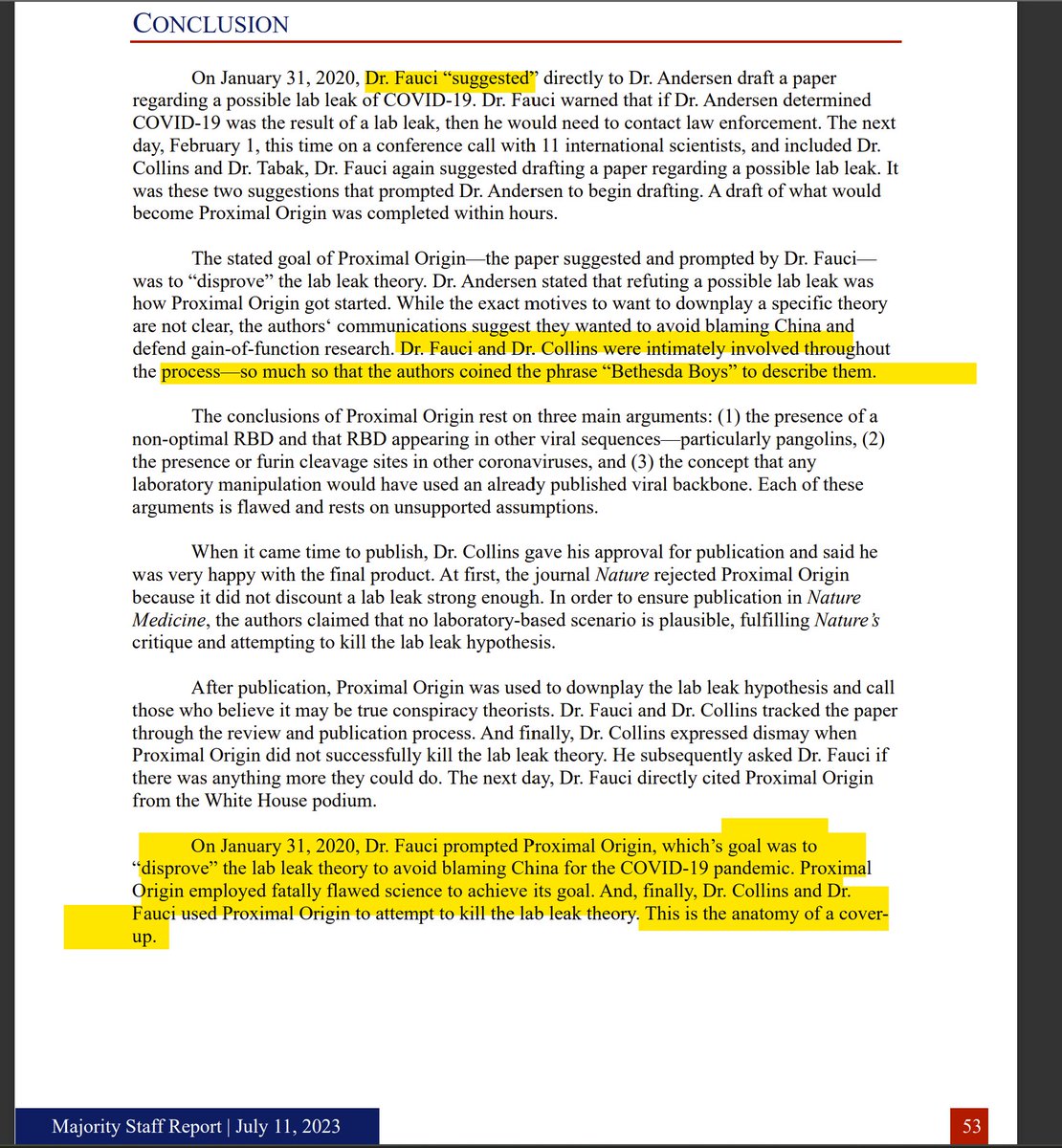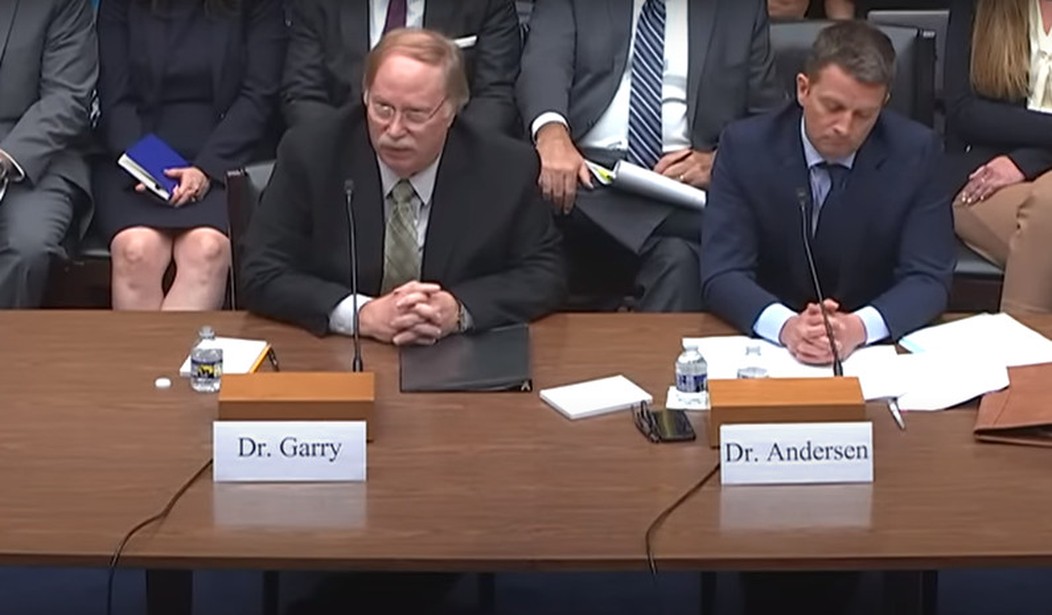When virologists Kristian Andersen of Scripps Research and Robert Garry of Tulane University testified before the House Select Subcommittee on the Coronavirus Pandemic on July 12 that there had been no quid pro quo attached to an $8.9 million grant from Dr. Anthony Fauci’s National Institute of Allergy and Infectious Diseases and a paper the two men authored titled The Proximal Origin of SARS-CoV-2, which dismissed the possibility that COVID-19 originated from a laboratory leak; they were being disingenuous if not outright dishonest. See ‘S–tshow’: Scientists Downplayed Lab Leak Theory re: COVID Origins for Fear of China’s Reaction if Blamed for coverage of the hearing by my colleague Susie Moore.
In his testimony to the subcommittee, Andersen declared:
It has also been suggested that a $8.9 million federal “WARN-ID” grant awarded in 2020 to myself and colleagues from five different countries was a quid-pro-quo we received for changing our conclusions about the likely origin of SARS-CoV-2.
…
As for the WARN-ID grant, the key funding decisions were made before the pandemic and months before the February 1 conference call (34). There is no connection between the grant and the conclusions we reached about the origins of the pandemic. We applied for this grant in June 2019, and it was scored and reviewed by independent experts in November 2019. The grant awarding process is based on merit and follows an established, documented, and transparent process (35). Based on the actual timeline of this grant, it is not possible that the merit-based federal grant awarding process was influenced by a call in February, 2020
Andersen got help from Michigan Democrat Representative Debbie Dingell.
Democrats, including Michigan Rep. Debbie Dingell, defended the integrity of the scientists. Under her questioning, Andersen reiterated that the grant application could not possibly have influenced his willingness to publicly entertain the chance that risky research at the Wuhan lab may have led to the pandemic. “If the grant were scored and reviewed as part of the NIH’s transparent merit-based process in November 2019, is there any way that the awarding of the grant could have been used as a bribe during the February 1, 2020 conference call?” Dingell asked.
“Excluding the possibility that somebody is a time traveler, no, that is just not possible given the timeline,” Andersen insisted. Garry added: “I agree.”
Just as the denial by the doctors of political pressure being exerted to “shape” their opinions on the lab leak theory was not terribly convincing, there is evidence that the denial of a quid pro quo was also somewhat less than candid.
Andersen relies on the following timeline.
- Grant application: June 2019.
- Grant approval recommended: November 2019.
- Fauci asks Andersen for an article “debunking” the lab leak theory: January 31, 2020

- Paper authored: February 4.
- Paper published: March 17.
The problem with Andersen’s story is that the Advisory Council that recommended the grant is just that: advisory. The grant, totaling $8.9 million over five years, was not awarded until May 21, 2020. What makes the denial of a quid pro quo less than convincing is that Andersen did not issue a press release on the major NIAID grant award until August 27, 2000.
No matter how you cut it, Andersen’s award wasn’t forthcoming until after his article “debunking” the lab leak theory had already been published. What Andersen knew was pending approval was a large grant to fund a longtime goal of Andersen.
For Richard Ebright, a molecular biologist and critic of Andersen’s, the timing put Fauci and Collins at an extraordinary advantage in their interactions with the scientists. Building the West African center had been a longtime goal of Andersen and Garry. “The post-Council administrative review stage plays an especially large role in proposals for multi-investigator center grants and program project grants, for which programmatic fit and programmatic balance are deemed as important as scientific impact,” Ebright told The Intercept. “Andersen and Garry had a proposal for a center grant in the post-Council administrative-review stage in January-May 2020, making them maximally susceptible to pressure from Fauci and Collins.”
Ebright added that the pending grant proposal would not have needed to have been brought up explicitly on the call or in other conversations. “This would have been known to, and clear to, both the potential grantees (Andersen and Garry) and the potential grantors (Fauci and Collins) on the February 1, 2020 telecon, and would not need to be mentioned to be motivational,” he wrote in an email.
When Andersen was asked to write an article slamming the lab leak theory, he, and everyone else in the conversation, knew that he had a career-making grant pending approval by the NIAID front office. That grant was not awarded until after Andersen delivered on Fauci’s request.
There is no documentary evidence that a quid pro quo was involved, but what is very clear is that the explanation Andersen gave Congress about why a quid pro quo is not possible is absolute hogwash.
Complete Hearing Video













